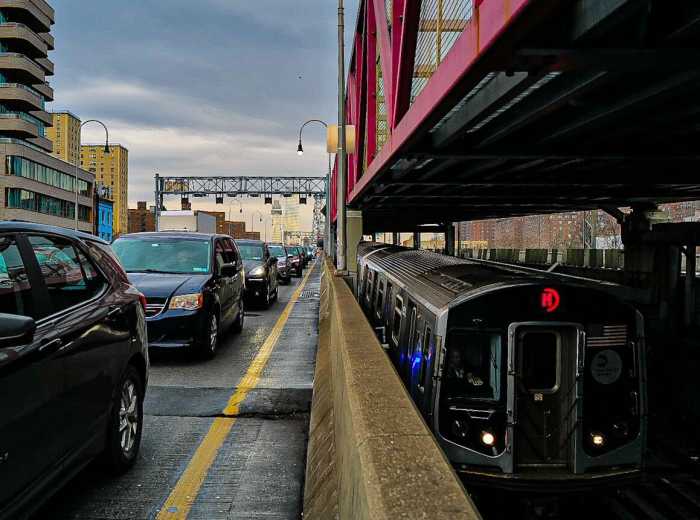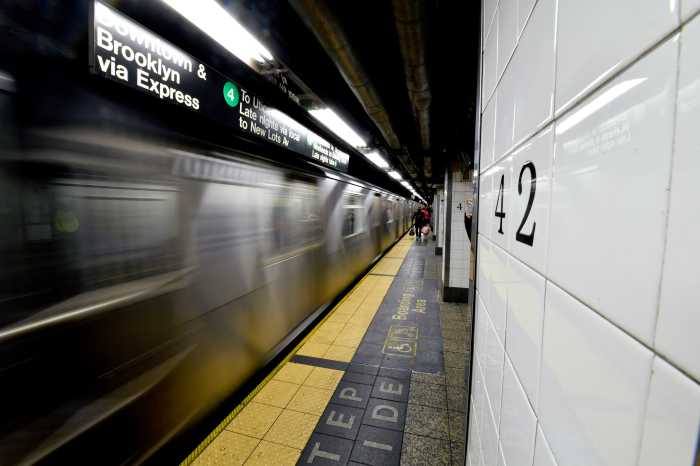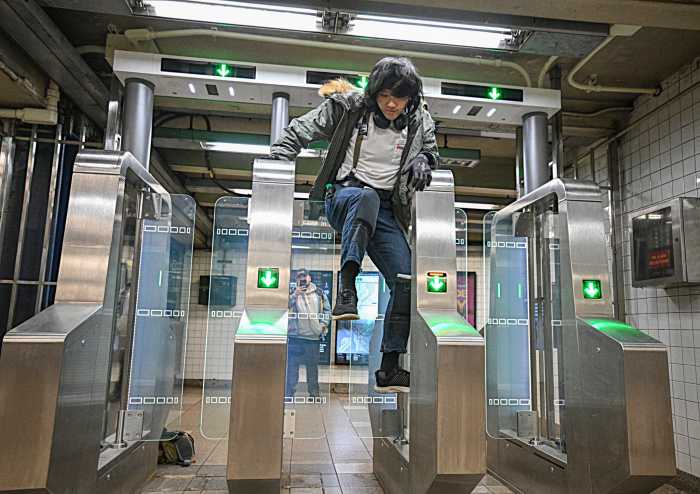A dozen, dockless bike share companies are in the running for New York City’s pilot program that will launch this summer, Deputy Mayor Alicia Glen said Tuesday.
The pilot aims to bring bike share options to neighborhoods not currently served by Citi Bike — including some in Staten Island and the Bronx — while testing out the emerging technology. Unlike standard bike-share systems like Citi Bike, which depend on fixed docks to park and unlock bikes, dockless models rely on mobile apps that allow riders to lock and unlock bikes via their phones. Cyclists are thus able to park the bike at their destination, where bikes typically automatically lock the back wheel.
“We think we have a way in which we can marry this new technology and add this to the existing docked system operated by Citi Bike,” Glen said during a talk at NYU’s Rudin Center for Transportation Policy & Management on Tuesday. “These are some of the public policy challenges you have — to take what is already working and continue to innovate and let the system build.”
Last December, the city issued a “Request for Expressions of Interest” calling on companies to submit their pitches for the pilot. That submission period closed on March 15 with a “healthy response” from companies around the world, Glen said.
The city will interview executives and announce their selection of one or multiple companies for the pilot within the next few months. Glen said the city has several key interests: affordability, seamless coexistence with Citi Bike’s current system and strong management strategies to help ensure bikes aren’t left in inappropriate locations.
“The last thing we want to have happen is some of those horror pictures you see of [bikes] in Beijing and Shanghai, where bikes are just littering the streets,” Glen told reporters after the event. “So we’re very interested in the actual operations and logistics of how these systems are going to work and, again, how they are going to coexist with the existing docks.”
The city declined a request for identification of the twelve companies being considered for the pilot. Several companies said they had submitted proposals, including Motivate, the operators of Citi Bike; ofo, a Beijing-based company; and JUMP, a Brooklyn-based company that utilizes legal, motorized bikes powered by pedaling, known as pedal-assist bikes.
Many dockless services don’t require memberships, but offer riders rates at usually $1 per half-hour in cities like Dallas, Washington, D.C., and Seattle.
The dockless pilot is the latest saga in the city’s attempt to bring bike share service to all five boroughs. It pursued the new technology after lengthy discussions with Motivate on whether to subsidize a five-borough expansion, or to strike a deal with the company to grant it exclusive operating rights in the city in return for citywide operation.
Pressure has been mounting fast to fill Citi Bike’s service gaps. In August, the city had to issue a cease-and-desist letter to the dockless company Spin after it attempted to launch an unsanctioned 100-bike pilot along Rockaway Beach.




































